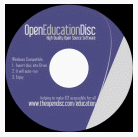Last week a number of work based learning providers from across the country attended the launch of Round 4 of the successful Learner Innovation Grants programme managed by ALP. Unfortunately the event was oversubscribed so some missed out, however such high numbers did signal a very positive demand for funding to support e-learning development.
The day featured a number of presentations, all of which will are now available on
ALPs new website so if you weren’t able to make the event you can still learn a lot from those. Our RSC National WBL Co-ordinator summarised some of the key points worth noting:

· In this round, there will be a 6.9% + VAT management service contribution which will be payable upfront by the lead bidder prior to signing of the agreement
· The focus is on Train to Gain and Apprenticeships
· ALP are encouraging consortia bids – with funding ranging from £50k to £200k for those, and £50k to £100k for single bids
· Bid submission will be by the 8th September
· ALP recommend that bids refer to national and regional strategic objectives and priorities
· Projects should consider sustainability
· Allocation letters will be sent out week commencing 17th November
· Interim evaluations will be in March 2009 with final evaluations taking place in June 2009
A full prospectus and FAQ on ALPs website offer much more detail and the application form is
now available on-line.
What also came out of the day was the amount of support that is now available to help providers make the most of this round of funding.
This summary document (pdf.format) outlines all of the organisations who are offering support not just for this LIG funding but to all LSC funded providers wanting to progress their e-learning. It’s certainly worth making a note of these if you haven’t already engaged with them.
As well as the face to face support available a
forum has also been established on QIA to:

· Ensure all providers are aware of the LIG project
· Share best practice from the LIG projects
· Support providers through the bidding and delivery phases of the LIG project
· Develop case studies showing the positive impact of the LIG projects
Like the
networking pages of Innovate, it’s a good place to chat with other providers about some of the issues relating to this round of funding, and to get answers to LIG 4 questions that may have already been asked.
 For example, here, a recent Excellence Gateway case study shows how Training for Travel (TFT) has been using a digital notepad to meet their training assessment needs.
For example, here, a recent Excellence Gateway case study shows how Training for Travel (TFT) has been using a digital notepad to meet their training assessment needs.




















